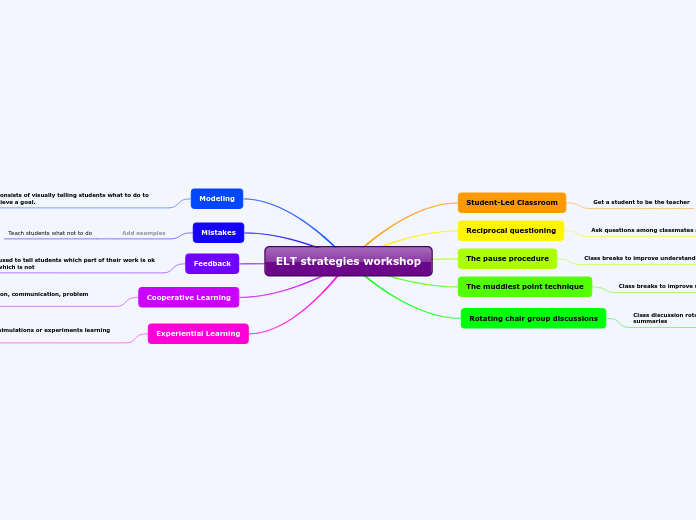by LUIS EDUARDO 3 years ago
360
ELT strategies workshop
This workshop focuses on various strategies to enhance English Language Teaching (ELT). Techniques like experiential learning involve games and simulations to facilitate hands-on understanding.

by LUIS EDUARDO 3 years ago
360

More like this
A noun is a word that functions as the name of some specific thing or set of things, such as living creatures, objects, places, actions, qualities, states of existence, or ideas.
Compound nouns are words where two nouns have been stuck together to make a new noun. Compound nouns should be written as one word, without a hyphen.
Generic nouns are nouns that are part of a generic statement. Generic nouns can be singular or plural. The opposite of generic nouns is collective nouns.
The difference between definite/indefinite and generic nouns is that in the sentence there must be a blanket statement or question.
Proper nouns are the names of specific people or places. They should always begin with a capital letter.
A concrete noun is a noun that can be identified through one of the five senses (taste, touch, sight, hearing, smell).
Possessive nouns are nouns which possess something, normally another noun.
Countable nouns are nouns that can be counted, even if the number might be extraordinarily high.
Uncountable nouns are nouns that come in a state or quantity which is impossible to count; liquids are uncountable, as are things which act
like liquids.
Common nouns are words for people, places or things that aren’t specific (as opposed to a proper noun which refers to only one person, place or thing).
Common nouns can be countable or uncountable, singular or plural.
A noun which refers to a group of things/people.
A noun which cannot be identified by using one of the five senses (taste, touch, sight, hearing, smell).
Irregular nouns are nouns which don’t follow a spelling pattern when pluralized.